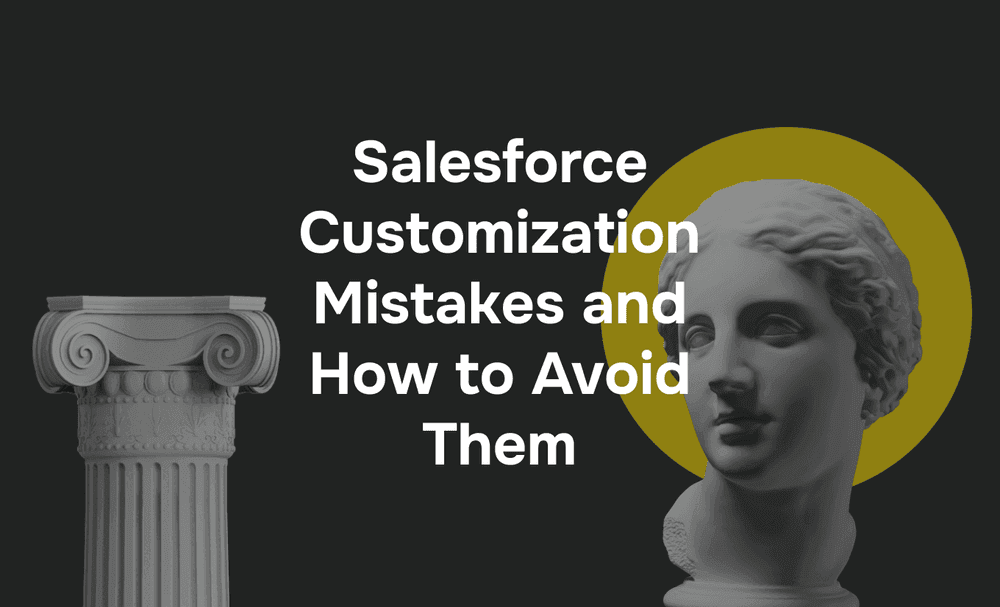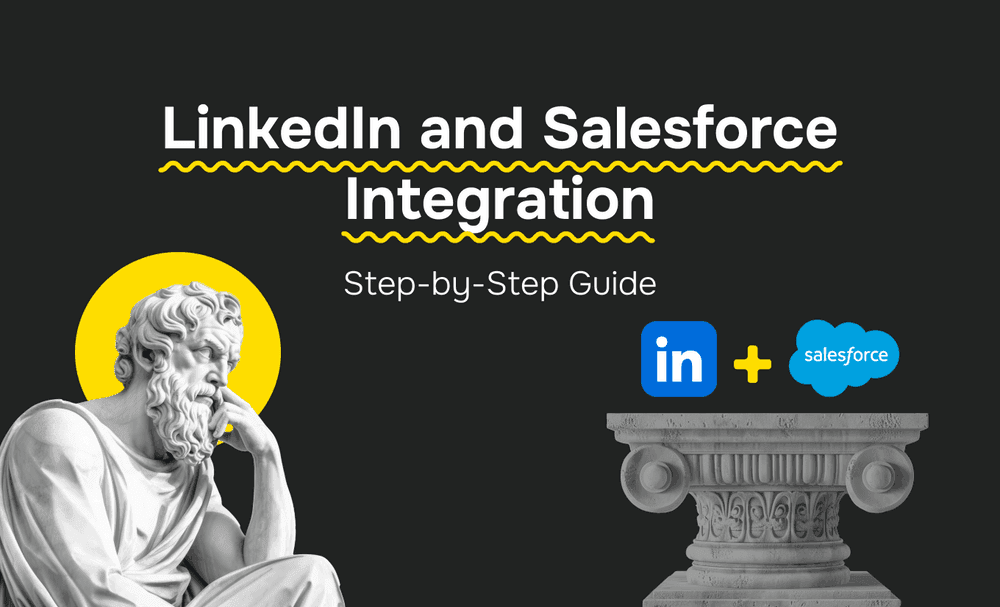Choosing the right marketing automation platform has revolutionized how businesses engage with customers, streamline their marketing processes, and improve lead generation. As companies increasingly rely on advanced tools to optimize their workflows, the competition among marketing automation platforms has grown more intense. Among the leading platforms are Marketo and Pardot, each offering powerful features tailored to different business needs.
In fact, the global marketing automation software market size is projected to grow from $7.23 billion in 2025 to $16.81 billion by 2032, exhibiting a CAGR of 12.8%. Within this competitive landscape, Marketo and Pardot stand out, with each platform continuously evolving to meet the demands of modern marketing.
In this detailed comparison, we’ll explore the latest features of both platforms, focusing on their integration with AI and other tools, as well as their specific advantages for enterprises and B2B organizations. Whether you're looking to scale your marketing efforts, improve lead nurturing, or enhance personalized messaging and data-driven decision-making through detailed insights, understanding the differences between Marketo and Pardot is essential.
Overview of Marketo

Marketo, now part of Adobe Experience Cloud, is one of the most powerful marketing automation platforms available today. Tailored for enterprise-level businesses, Marketo offers an extensive set of features designed to handle complex marketing needs.
Recent Acquisition and Integration
The Adobe acquisition of Marketo has significantly impacted its functionality, especially with the introduction of advanced creative and analytics tools from Adobe’s suite, like Adobe Experience Manager and Adobe Analytics. This acquisition has allowed Marketo to deepen its integration with Adobe Creative Cloud and Adobe Experience Cloud, offering a seamless user experience for marketers needing creative and data-driven solutions. This positions Marketo as a comprehensive marketing tool that enhances content creation and campaign execution.
Marketo’s Integration with LinkedIn
Marketo’s integration with LinkedIn has revolutionized social media marketing for businesses. By connecting LinkedIn’s lead gen forms with Marketo, businesses can generate leads directly from LinkedIn while benefiting from Marketo’s advanced segmentation, analytics, and nurturing features. This native integration makes Marketo a go-to solution for businesses aiming to optimize lead generation across social platforms.
Overview of Pardot

Pardot, part of Salesforce Marketing Cloud, is a robust marketing automation tool for B2B organizations. Known for its strong CRM capabilities, Pardot's form integration is deeply integrated with Salesforce CRM, making it a powerful option for businesses already using Salesforce products.
Expanded Salesforce Integration
Pardot’s seamless integration with Salesforce Sales Cloud, Service Cloud, and Einstein AI significantly enhances its capabilities. With Pardot, marketing teams can easily align their efforts with sales teams, synchronize customer data, and leverage predictive analytics to improve lead scoring and campaign performance, while its seamless sync with Sales Cloud ensures that sales teams have real-time insights into lead activity. This deep integration ensures that both marketing and sales teams work from a unified platform, making it particularly beneficial for organizations with complex sales cycles.
Enhanced Lead Scoring and Nurturing
Pardot has significantly enhanced its lead scoring and nurturing capabilities by integrating AI-powered features. With dynamic lead scoring, the platform automatically prioritizes leads based on engagement, behavior, and demographics, ensuring that sales teams focus on high-potential prospects.
The addition of predictive lead scoring further refines this process, using machine learning to analyze past data and predict which leads are most likely to convert, continuously improving over time. This AI-driven approach boosts sales alignment and enhances marketing efficiency by automating lead prioritization, allowing teams to focus on the most promising opportunities.
Key Features and Capabilities

Lead Management
Both Marketo and Pardot offer robust lead management tools and segmentation rules as part of their automation rules, but their approaches cater to different business needs.
Marketo excels in multi-channel lead management, supporting marketing across multiple touchpoints such as email, web, social media, and mobile. With advanced segmentation, Marketo enables marketers to create highly targeted campaigns, segmenting leads based on attributes like demographics, behavior, and engagement history.
This allows businesses to deliver the right message to the right audience at the right time. Marketo also offers lead nurturing through automated workflows, helping businesses engage prospects continuously as they move through the sales funnel. Marketo’s multi-touch attribution model gives a detailed view of how each interaction contributes to lead conversion, providing deeper insights into campaign performance.
Pardot, now known as Marketing Cloud Account Engagement, provides a streamlined approach to lead management tailored for B2B marketers. Engagement Studio allows businesses to create sophisticated, automated lead-nurturing workflows. It’s a drag-and-drop tool that enables marketers to design personalized email campaigns, segment leads based on behavior, and ensure timely follow-up actions, making engaging with leads at the right time in their buyer journey easier.
This reduces form fatigue and enhances data collection. Pardot integrates seamlessly with Salesforce CRM, ensuring a unified view of lead data and facilitating efficient lead handoff to sales teams.
AI and Automation Features
Both platforms utilize AI to enhance efficiency and user experience, though with some differences in their focus areas.
Marketo has recently introduced Generative AI innovations, significantly improving content creation and customer personalization. With the help of Adobe’s generative AI, marketers can efficiently create personalized content for email campaigns, nurturing, chat, webinars, and more and improve marketing ROI.
The AI-powered tools allow quick iterations on content, optimize messaging for various target roles, and provide personalized imagery through integration with Adobe Firefly and Adobe Experience Manager. This allows for dynamic lists and brand-approved content creation at scale.
Moreover, Marketo's AI powers Dynamic Chat, expanding engagement with AI-generated Q&A pairs or real-time, on-the-spot responses. This functionality helps marketers control the content while enhancing engagement and shortening sales cycles. The platform also offers AI-driven insights through Marketo Measure, which provides advanced B2B measurement and attribution with AI's superior pattern recognition for better ROI tracking.
Pardot, integrated with Salesforce Einstein AI, primarily uses AI for predictive lead scoring and intelligent segmentation. Einstein AI analyzes historical data and interactions to identify lead grading and which leads are most likely to convert. Pardot includes ROI reporting features that enable businesses to track and analyze the effectiveness of their campaigns.
Pardot's automation helps with lead nurturing, ensuring that marketing teams focus on leads who are showing the highest engagement signals. Moreover, Pardot’s Einstein Behavior Scoring uses machine learning to track and predict lead behavior. It offers more refined insights into where leads are in the buyer journey and how they interact with content.
Pardot also leverages AI for predictive analytics, allowing businesses to generate intelligent recommendations for campaign adjustments based on real-time data and customer behavior. This AI-driven lead scoring and segmentation enhances personalization efforts by ensuring that outreach is targeted, leading to more efficient sales processes and improved conversion rates.
Campaign Management
Marketo provides a comprehensive suite of campaign management tools designed to support large-scale, multi-channel marketing efforts. It includes advanced analytics to track campaign performance across email, social, and web channels and A/B testing to optimize campaign elements such as subject lines, calls to action, and email designs.
Marketo also allows for cross-channel orchestration, enabling marketers to execute integrated campaigns that span multiple channels, ensuring a consistent and cohesive customer experience.
Pardot, while offering powerful campaign management tools, is more user-friendly and streamlined for B2B marketers. It offers an intuitive drag-and-drop builder for automated workflows, allowing marketers to design nurture campaigns and lead progression paths easily.
Pardot’s ROI tracking tools also allow marketers to measure campaign success and calculate the direct impact of marketing efforts on sales. However, compared to Marketo, Pardot may have fewer advanced options for multi-channel campaign orchestration, making it a better fit for smaller teams or businesses seeking simpler setups.
User Interface and Ease of Use
Marketo
Complex Interface: Due to its wide range of features and customizations, Marketo has a steeper learning curve, which might be challenging for new users or smaller teams.
Mobile App: Marketo has enhanced its mobile app to allow marketers to track performance, approve content, and manage campaigns on the go. This makes it more convenient for enterprise-level teams that need access to marketing data while away from their desks.
Ideal for Enterprises: Its interface and flexibility are well-suited for large businesses that need detailed control over their multi-channel campaigns.
Pardot
User-Friendly: Pardot is designed to be more intuitive and easier to use, especially for B2B marketing teams. It offers drag-and-drop functionality, making campaign setup and management simple without the need for extensive technical knowledge.
Mobile Access: Pardot’s mobile functionality provides marketers essential tools to monitor lead activity and campaign performance. While the mobile experience isn’t as feature-rich as Marketo’s, it still allows for important tasks like tracking lead progress and viewing reports.
Ideal for Small to Mid-Sized Teams: Pardot’s more straightforward interface is better suited for businesses needing efficient marketing automation without extensive complexity or training.
Marketo vs Pardot Mobile Experience Comparison

Pricing and Scalability
Both Marketo and Pardot offer flexible pricing models tailored to different business needs, but their pricing structures and target audiences differ significantly.
Marketo Pricing
Marketo suits large enterprises with complex marketing needs and a robust budget. It offers four key packages, each designed to scale with the growing demands of businesses:
- Growth: Starting with essential email marketing, segmentation, automation, and measurement features. This plan includes up to 10 users and 20,000 daily API calls.
- Select: Includes more advanced features like cross-channel marketing and reporting capabilities. Ideal for businesses looking to expand their capabilities.
- Prime: Targeted at businesses looking for lead and account-based marketing, journey analytics, and AI personalization.
- Ultimate: This plan offers the most comprehensive features, including premium attribution and deeper analytics for enterprise-level campaigns.
While the pricing for each tier isn't publicly disclosed, it's typically higher for businesses that need advanced features such as predictive content, dynamic chat, and interactive webinars. Marketo's pricing scales with the number of users, API calls, and additional features like Marketo Measure for advanced analytics.
Pardot Pricing
Pardot's pricing is structured with more flexibility to accommodate small to mid-sized businesses while still offering robust marketing automation features. Here’s a breakdown of the pricing tiers:
- Growth: Starting at $1,250 per month, this plan covers up to 10,000 contacts and includes lead nurturing, campaign reporting, and engagement history dashboards.
- Plus: $2,750 per month, offering cross-channel journeys, multitouch and ABM dashboards, and B2B marketing analytics.
- Advanced: $4,400 per month, providing features like dedicated IP addresses, AI-powered capabilities, and advanced automation features.
- Premium: At $15,000 per month, this package includes predictive analytics, business units, sandboxes, and 24/7 support with a Premier Success Plan.
Marketo is more expensive and ideal for businesses with complex marketing needs and the resources to invest in a robust platform. For small businesses, Marketo’s pricing can be prohibitive unless they plan to scale significantly in the near future.
Pardot offers more flexibility for small to mid-sized businesses, with lower entry costs and the ability to add advanced features as needed. The tiered model is particularly advantageous for companies already using Salesforce, as the integration streamlines operations and enhances data synchronization.
Conclusion
Marketo and Pardot offer powerful marketing automation solutions, catering to different needs. Marketo is ideal for large enterprises requiring advanced features, multi-channel marketing, and scalability. It’s perfect for businesses with complex marketing strategies and the resources to support them.
In contrast, Pardot provides a flexible, user-friendly solution for small to mid-sized businesses, especially those already using Salesforce. Its tiered pricing model makes it more accessible, with seamless CRM integration for streamlined marketing and sales efforts.
At MagicFuse, we specialize in implementing and optimizing both platforms to help businesses achieve their marketing goals. Whether you want to scale with Marketo's smart campaigns or simplify your B2B marketing with Pardot, we’re here to help.
Contact us today to discuss how we can tailor these platforms to meet your needs and drive business growth.
FAQs
How do Marketo vs Pardot differ in terms of AI capabilities?
Marketo utilizes generative AI to create personalized content at scale, enhance predictive content recommendations, optimize lead scoring across multiple channels, and offer customizable dashboards, ensuring access to relevant data. It also integrates AI-driven tools like Dynamic Chat and Marketo Measure for advanced attribution and engagement. Pardot leverages Salesforce Einstein AI to enhance predictive lead scoring, segment leads based on behavior, and improve campaign targeting by analyzing past data to predict future behaviors.
Which platform is better for B2B marketing?
Pardot is specifically tailored for B2B marketing. Its deep integration with Salesforce CRM and features like progressive profiling and lead scoring make it an ideal choice for businesses with longer sales cycles and complex lead management needs. Marketo is also effective for B2B but is better suited for larger enterprises with more complex marketing strategies.
How can Marketo’s integration with Adobe enhance marketing campaigns?
Marketo’s integration with Adobe enables enhanced content personalization, using Adobe generative AI to scale content creation across channels. This integration also leverages Adobe Firefly for personalized imagery, improving the visual appeal and relevance of marketing campaigns, while Marketo Measure helps track and optimize ROI with AI-powered insights.
How can MagicFuse help with the implementation of Pardot?
At MagicFuse, we specialize in seamless Pardot implementation, ensuring smooth integration with your existing Salesforce CRM and optimizing workflows. Our team will work closely with you to customize Pardot’s features to meet your business needs, improve lead nurturing, and enhance your marketing and sales alignment.
How to start the communication process on my project?
Just contact us. We’ll schedule a consultation to understand your specific needs and provide tailored advice on how to implement the right marketing automation solution for your business. Let’s discuss how we can drive your marketing success.
















